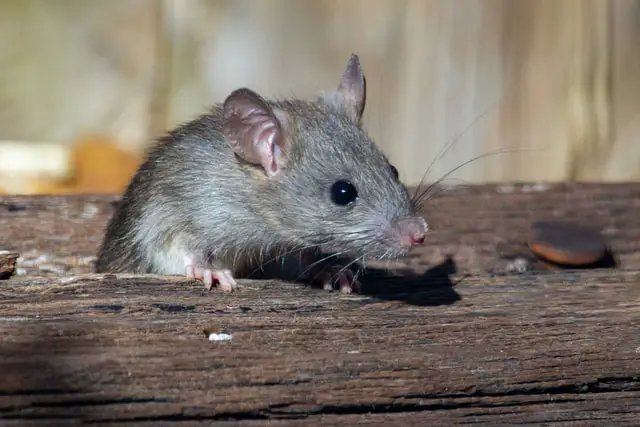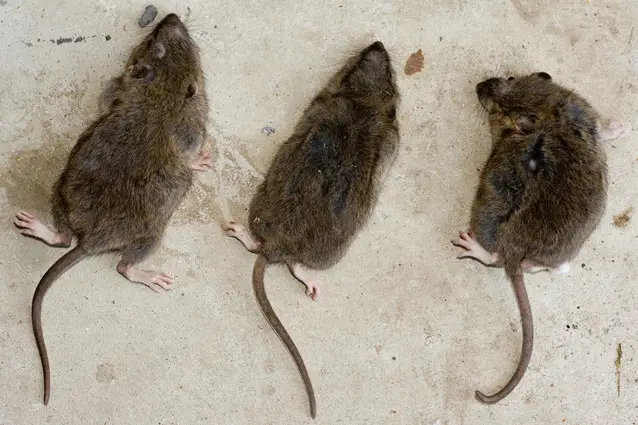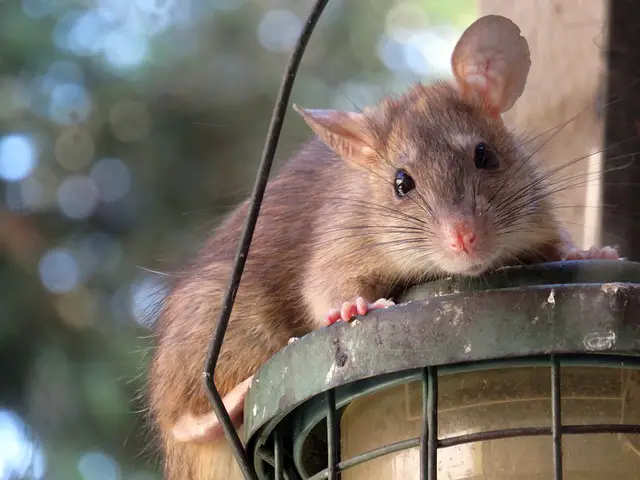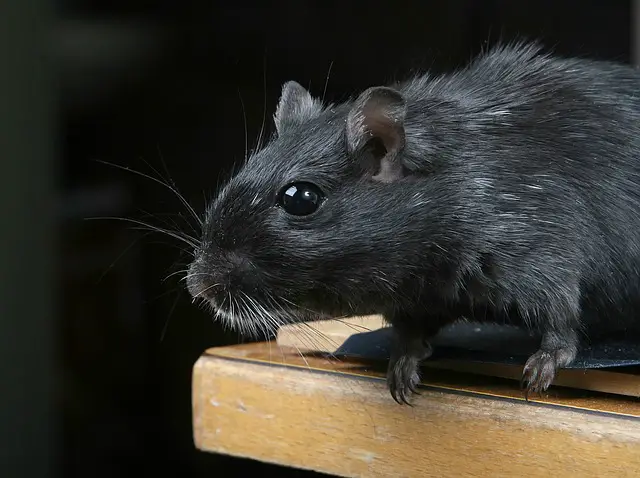You may have seen those little, cute rats at the pet store, or maybe you even have one as a pet already, but did you know that rats can eat grapes? It’s true! Rats can eat grapes, but not all of them like it or should be given grapes on a regular basis. Let’s talk about why they can eat grapes and what kind are best to feed your rat in our complete guide to whether rats can eat grapes or not!
Can rats eat grapes?
Yes, in small quantities. The fruit is actually poisonous to most animals (including humans), so it’s best not to give them more than a handful at a time, and definitely not as treats. A rat’s stomach is acidic enough that they can eat an apple core or banana peel without any immediate issue, but grape seeds contain amygdalin, which turns into cyanide when digested. Although toxic to most animals, rats have a high tolerance for poison and can handle grapes with few ill effects. However, if you feed your rat too many grapes at once it may get diarrhoea and vomiting—which are pretty common effects of eating too much fruit anyway!
Related post: Rat Infestation Treatment
Can rats eat grapes with seeds?
If you’re curious whether or not rats can eat grapes with seeds, you’ve come to the right place. Whether you have a pet rat or are thinking of getting one, it’s important to know which foods are toxic for these tiny animals and which aren’t. After all, just because rats like a food doesn’t mean that they should be able to eat it. In fact, there are many foods out there that can be toxic to your rat (or any animal) if consumed in high enough quantities. Since rats love eating grapes so much and tend to love everything from fruits and veggies (even if they aren’t particularly healthy), many people end up wondering whether they should feed them grapefruit or another type of fruit altogether.
Do rats eat grapes?
If you’re asking yourself can rats eat grapes? you may be surprised to learn that rats can eat many different types of fruits and vegetables. In fact, rats are omnivores, which means they’ll eat a wide variety of food sources if available. Whether or not it’s a good idea for them to do so is another question entirely. When considering whether your pet rat should eat grapes or other types of fruits and vegetables, there are several factors to consider: quantity, variety and sugar content. Let’s go over each one individually.
Are grapes good for rats?
The short answer is yes, grapes are good for rats. Despite rumors that suggests otherwise, grapes are a safe and healthy fruit for pet rats to eat. The only caveat is that you should not feed them to your rat on a regular basis or in excess. If done correctly, though, grapes can be a healthy addition to your rat’s diet and will provide him with plenty of vitamins and minerals that he needs. There have even been studies conducted on humans which found strong evidence that eating plenty of grapes can boost health benefits within people as well! As such, if you want your pet rat to be as healthy as possible (and who doesn’t?), consider giving him some extra grapes now and then. But keep in mind: moderation is key!
Do rats eat grapes off the vine?
It is best to keep grapes and other berries away from pet rats as much as possible. Despite popular belief, it is not recommended to give your pet rat grapes and most pet rat owners do not feed their pets these fruits at all. However, if you do decide to feed your pet rats grapes or another fruit that you have grown yourself or obtained from a friend, then be sure that they are completely ripe before feeding them to your pets. Many fruits can be poisonous when not fully ripened so make sure you take note of which ones are safe to eat when non-ripe by researching online or talking with a local gardener who might know more about which varieties are ok for animals before giving them any fruit to eat.
Can pet rats eat grapes?
Pet rats can eat grapes, but they’re not always a good idea. As little as one grape can result in your rat having diarrhea and bloating, while more grapes can result in an upset stomach (vomiting) or even pancreatitis. The sugar content in grapes is also high enough that it can contribute to dental problems in rats, and because of their size, rats are unable to chew them well enough to fully reduce their sugar content. For these reasons, many people choose not to feed grapes to pet rats at all. The best thing you can do for your pet rat is stick with fresh fruit or veggies. It’s better for them and easier on your pocketbook!
Should grapes be part of your rat’s diet?
Grapes make great treats for rats, but do they belong in their regular diet? It’s tricky to answer that question because there are two different types of grapes: seedless and seeded. Seedless grapes are known as table grapes and they’re technically off-limits to rats (and most other animals). Sourced from a variety of fruits such as muscadines and sultanas, table grapes are usually smaller than seedless varieties; they also lack any nutritional benefits you might find in some of your rat’s staple foods.
Are grapes toxic to rats?
Like humans, rats can eat a variety of fruits and vegetables. This means that grapes are safe for them to consume in moderation. Of course, like any new food source you introduce to your pet, grapes should be introduced slowly and only in small amounts at first. Start with one grape (remove seeds if they’re present) per day until your rat gets used to eating them. Once she’s accustomed to eating them regularly, then increase serving size based on how well she tolerates it. One half cup of whole grapes is considered a healthy serving for an adult rat every other day. If you’re looking for fruit alternatives for rats that are more commonly accepted by rats as food sources, be sure to check out our list of 4 fruits that rats can eat!
Can rats eat purple grapes?
The purple variety of grapes is most commonly referred to as a concord grape. Many people love these grapes because they have a great flavor and texture, but unfortunately, these types of grapes are often not safe for rats to eat. While concord grapes are safe for human consumption, it’s difficult to separate them from their seeds and peelings; eating too many of these seeds or peels can cause stomach issues in rats. Additionally, purple grapes (along with some other varieties) contain high levels of tyramine; consuming too much tyramine can cause headaches in humans, but has been linked to serious health issues in rats.




